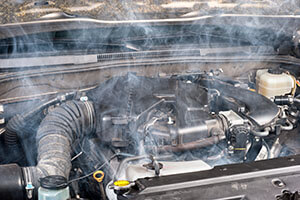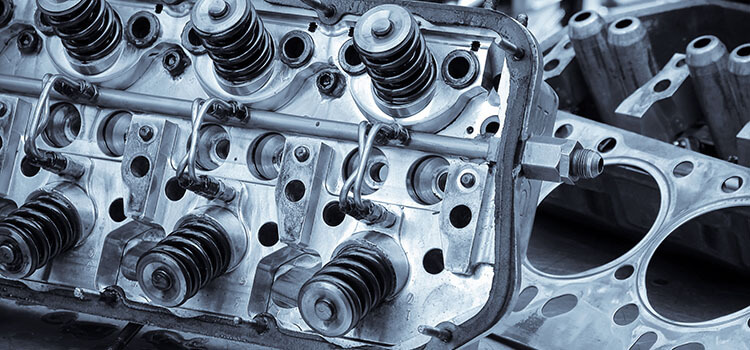Before you buy your next car (or while you're trying to diagnose an issue with your current one), remember to look for information about specific makes, models, and years. Keep yourself up to date on known manufacturing defects and safety recalls. You can see how much your car is worth now.
Most Common Car Issues & Auto Electrical Problems
If your car has an issue, don't ignore it. Car damage tends to be progressive, which means that taking care of minor, low-cost repairs now can prevent thousands in future repairs. Besides, maintaining your car in good condition is an important part of making sure you and your family stay safe on the highway.
Just keep in mind that these are just some of the most frequent issues we see in newer cars. If you're trying to diagnose a current problem you're having with an older car, you might not see it on this list of things that can go wrong with a car. There are definitely more exotic problems out there! So check out this list of common car problems, learn what are mechanical issues in a car you can expect, and watch out for them in your own auto.
Get an Instant Online Offer for Your Car!
Enter your zip code below to get your FREE estimate and see how much your car is worth.
Get paid the real cash value of your car in 24-48 hours!
(Not So) Normal Wear and Tear on a Car
 Certain types of problems will happen at some point to every car, no matter how high the manufacturing quality or meticulous its maintenance. However, these normal vehicular "signs of aging" popping up much too early make up a large portion of common vehicle problems.
Certain types of problems will happen at some point to every car, no matter how high the manufacturing quality or meticulous its maintenance. However, these normal vehicular "signs of aging" popping up much too early make up a large portion of common vehicle problems.
If a simple car problem turns into a more serious issue it may make more sense to sell your junk car online. Read on to see if your car issues show up on this list of car problems and whether it has a quick fix, or requires more costly repairs.
-
Worn Brake Pads
One of the most dangerous problems a car can have, brakes naturally wear down over time. That's why it's so important to keep up with their maintenance; the trick is to catch the problem long before true failure. Certain factory defects can make this difficult, however, as affected brake pads and rotors wear down much more quickly than expected.
-
Excessive Oil Consumption
It's a fact of life: Your car will need fresh oil to stay functioning. However, if you're finding it's needing changes and top-ups more frequently than it should, there might be a problem. Early signs you need to check your oil include a minor dip in performance and the ever-dreaded oil light on your dashboard. When your car is in a particularly dire need of an oil change, you may even start to see corrosion in its engine. Another oil-related complaint is the clogged oil filter. You'll probably see this problem if you've waited too long to change the oil. While modern cars come with systems that are equipped with filter bypasses, it's a good rule of thumb to change the filter whenever you change the oil.
-
Uneven Tire Wear
While many flats and blowouts are due to external forces, they can also be attributed to factory defects in the tire itself. Some tread wear is normal over time, but excessive tire wear early on is not. Additionally, if your tires are wearing out unevenly or you feel a vibration through your steering wheel, your suspension is probably in need of alignment.
-
Radiator Leaks
Corrosion is the typical culprit when it comes to radiator leaks. However, the root cause of corrosion can be anything from poor maintenance to factory defects to contaminated fluid. In general, it makes more sense to replace a radiator rather than patch it up. That first leak means corrosion has already set in and that more leaks will follow soon. Whichever course you decide to take, avoid driving your car before its fixed — A leaky radiator can lead to overheating and even an engine fire.
-
Cracked Windshield
While it still takes an errant rock or some other heavy catalyst, many car windshields are rolling off the assembly line with stress defects that make them more vulnerable to damage. Small ones may seem like a cosmetic problem, but any cracks can potentially compromise the structural integrity of your vehicle.
-
Emission System
Your car's emission system includes everything it needs to run efficiently while minimizing pollution. However, it also includes some sensitive equipment prone to problems. O2 sensors tell your car how much oxygen to put in the fuel mixture. Faulty O2 sensors will result in your car running less efficiently.
-
Evaporative Leaks
High outside temperatures cause the fuel in your gas tank to expand. Without some venting, that pressure would build and damage your gas tank. However, since these fumes are also toxic, modern cars are equipped with a system of specialized vents and devices to keep this pollution from hitting the open air. Problems with this system are called evaporative leaks. Loose gas caps are by far the most common evaporative leaks, causing roughly half of newer car repairs based on the "check engine" light. While a gas cap costs only a few dollars to replace, ignoring that warning can lead to catalytic converter failure, a problem that will run you over $1,000 to solve.
-
Malfunctioning Sensors
Modern cars run with the help of an array of high-tech sensors, but those come with their own issues. Faulty fuel-air sensors are some of the most common, with pricey replacements at around $250 or more.
-
Transmission
Your car's transmission is basically a gearbox that converts the power generated by the engine into rotational force (torque) the wheels can use. Unfortunately, it's also one of the most frequent sources of complaints. Over time the gears can wear down, resulting in the transmission not being able to shift gears properly. Eventually, the whole transmission will fail. That’s a multi-thousand-dollar fix.
-
Transmission Fluid Leaks
Your vehicle's transmission requires a special fluid to keep its components well lubricated. In cars with automatic transmissions, transmission fluid also works as a hydraulic fluid and coolant. Over the course of your car's life, small holes can form anywhere in this system, such as in the fluid lines, seals, or gaskets. These tiny tears allow transmission fluid to escape, causing a leak. If the leak is bad enough to lower the overall fluid levels, your transmission will lose efficiency and may eventually fail, whether from overheating or internal pressure loss. Leaks can also come from cracks in the transmission pan that collects excess fluid. When that happens, you'll probably see a big red puddle under your vehicle.
-
Clogged Filter
Transmission fluid can also get dirty over time as it picks up particulates, which include everything from flaked off bits of metal to everyday grime. Many transmissions have filters to strain out these particulates, but they can themselves become clogged over time. However, since the transmission is supposed to be a closed system, excessive contaminants point to the possibility of serious defects or beyond-repair wear.
-
Water Damage
Liquids can also leak into the transmission, such as the case with water dripping from the radiator or the whole unit getting soaked through from serious flooding. However it got there, water mixing with transmission fluid is bad news. Even a very small amount of water can lead to transmission failure. This is because water directly damages the components of the transmission system, wearing away glue and rusting metal.
-
Electrical Problems: Speakers
Another common source of car complaints, particularly for newer vehicles, come from problems in their extensive electrical systems. Electrical gremlins can infect any system. Few are more annoying than the speakers failing, because we all like to rock out. Sometimes, the connections for the speakers wiggle off, preventing the speakers from working. If this happens, just pull the speaker out and reattach the wires.
-
Lights
Whether a burnt out bulb or a poor connection, if your headlights, brake lights, or turn signals are out, you've got a safety issue on your hands. While the bulbs themselves are lasting longer than ever, corrosion and poor wiring is still a major concern.
-
Dead Battery
The cause may be a defect or mistreatment — hot summers or that one time you may have accidentally left a light on for a day (or five) — dead batteries are a frequent cause of panic among car owners. While repairs can be as simple as getting a jump from a neighbor, most batteries need to be replaced every three to six years.
-
Cosmetic Issues and Other Minor Annoyances
Luckily not all common car problems need your immediate attention. Scratches, yellowing headlights and streaky windshields can be very annoying. But, they can also be fixed very easily. A bit of cleaner wax and touch-up paint will take care of minor scratches. A plastic restoration kit makes your headlights crystal clear again. And, a new pair of windshield wipers will prevent streaking.
-
Paint Problems
From discoloration to chipping to scratches, auto paint defects are some of the most visible car problems to have. While most are a nuisance, keep in mind that rust spots can lead to major structural damage if left unchecked.
-
Faulty Windows
As power windows have become the norm, car owners have seen the rise of one big annoyance: Windows that don't roll all the way up. While not too worrisome on its own, remember that too much of a gap makes you vulnerable to theft and water damage.
-
Faulty Starter
Does your car take longer than usual to start? If that’s the case and you hear a clicking sound before your car starts, your starter may be starting to fail. It’s a common problem that is pretty easy to repair. But, fix it fast, because if it fails your car won’t start.
-
Falling Gas Mileage
Believe it or not, your gas mileage is very dependent on the maintenance of your engine. Regular oil changes, replacing your engine air filter and changing your spark plugs will all make sure your car gets the most miles per gallon.
How can I get a quote for my damaged car instantly?
It's simple and it takes less than 90 seconds... click the button below to get started and find out how much your vehicle is worth!
Vehicle Pick-up is FREE Nationwide. No Haggle. No Fees. We are A+ rated business at BBB.

Is It Time to Sell Your Car?
The truth is nearly every part of your car can eventually cause trouble without ever being involved in an accident. As your car ages, car problems and repairs quickly outstrip its value.
When that happens and your car's warranties have long expired, and your car is often a non-starter. It actually starts to make more sense to just sell it and put some cash towards a new one.
So if you've got a car passed its prime, click the button below to get a no-obligation, guaranteed offer from CarBrain, the smart way to sell your car online.

